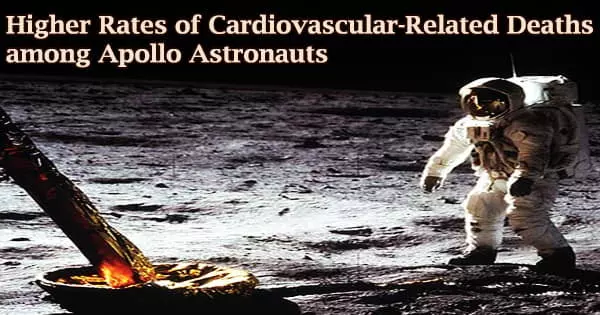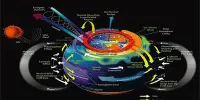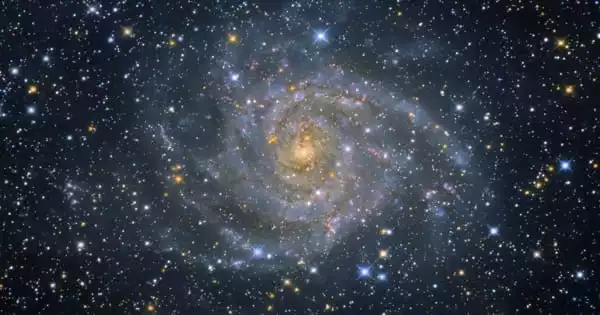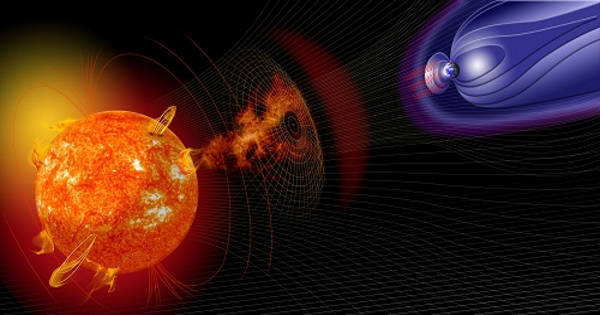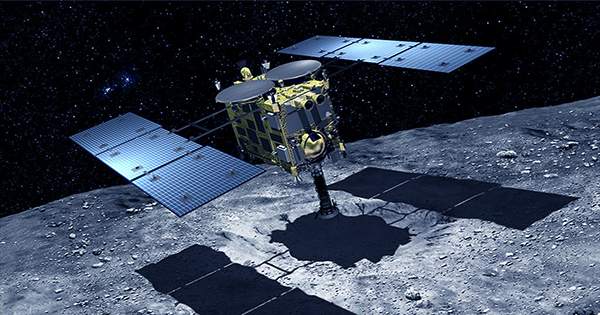According to a Florida State University researcher, members of the successful Apollo space program are having greater incidences of cardiovascular ailments, which are assumed to be caused by their exposure to deep-space radiation.
FSU Dean of the College of Human Sciences and Professor Michael Delp reveal in a new publication in Scientific Reports that the men who journeyed into deep space as part of the lunar missions were exposed to levels of galactic cosmic radiation never before seen by any other astronauts or cosmonauts. The effects of such exposure are now showing themselves in the form of cardiovascular issues.
“We know very little about the effects of deep space radiation on human health, particularly on the cardiovascular system,” Delp said. “This gives us the first glimpse into its adverse effects on humans.”
This is the first research to look into the Apollo astronauts’ mortality. The Apollo program lasted from 1961 to 1972, and between 1968 and 1972, 11 manned space flights were made. Nine of them flew beyond the orbit of the Earth and into deep space.
We know very little about the effects of deep space radiation on human health, particularly on the cardiovascular system. This gives us the first glimpse into its adverse effects on humans.
Michael Delp
The program is best known for putting men on the moon and for the Apollo 13 mission’s unsuccessful mission, which inspired the popular 1995 Ron Howard film. Delp’s research is particularly relevant at this time, as the United States and other countries, as well as private entities, are developing plans for deep space flight.
NASA has revealed plans for US orbital missions around the moon from 2020 to 2030, in advance of a manned journey to Mars. Moon missions are being considered by Russia, China, and the European Space Agency. Elon Musk’s company, SpaceX, has suggested landing humans on Mars by 2026.
Astronauts, as a group, are highly educated and have access to excellent medical treatment, resulting in superior health outcomes than the average population. However, when the Apollo astronauts ventured into deep space, they encountered different environmental conditions than anybody else on the planet.
According to Delp, 43 percent of Apollo astronauts who died of a cardiovascular condition. This is four to five times the rate of non-flight astronauts and astronauts who have gone in low Earth orbit.
Eight individuals perished and seven were included in the study of the 24 men who flew into deep space on the Apollo lunar missions. Edgar Mitchell, the eighth, died before the data analysis was completed.
Delp and his colleagues also subjected mice to the same level of radiation that Apollo astronauts would have been exposed to. The mice showed artery deterioration after six months, which is the equivalent of 20 human years, which is known to lead to the development of atherosclerotic cardiovascular disease in people.
“What the mouse data show is that deep space radiation is harmful to vascular health,” Delp said.
Delp is collaborating with NASA to undertake additional cardiovascular health studies on the Apollo astronauts.
